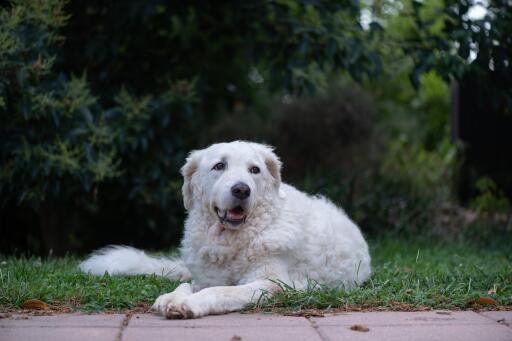
The beagle is small-sized scent hound that is closely related to the larger foxhound. Originally, this breed was developed to hunt hare. The beagle, which is now a fantastic hunting dog, can be found everywhere. The beagle is extremely vigilant and can pinpoint its prey with pinpoint accuracy.
Xenophon (1897), Hunting, (Cynegeticus).
The essay "On Hunting With the Beagle", by Xenophon, outlines several key steps for hunting with the hound. First, the hunter must train his hound to see the hare. The master should then feed the hounds at the hares' nets. Once the hare's been captured, the hunter needs to reward the hunting party with food.
Xenophon then discusses the importance and benefits of hunting for the war effort. Hunting can be an invaluable way to retrieve fellow soldiers in a difficult place. Hunting makes soldiers more upright and sober and trains them in the School of Truth. It is a better way to train soldiers than men who hunt virtue.
Xenophon's fascinating and thought-provoking presentation of hunting with the dog is captivating. He first explains why different types are important for hunting, then he explains how to chase. Some dogs are more focused on the chase than others, and some pursue the target with only physical means. Others follow the chase in a determined manner, while others chase the target with a sense jealousy.

Before foxhunting became popular in the 19thcentury, beagles hunted hare. Both young and old hunters found the beagle a great hunting companion. The beagle was also an excellent dog for hunting undergrowth. Its scent-tracking abilities made it an excellent hunting dog.
Xenophon (1897), Xenogeticus
The political philosophy of Xenophon is open to interpretation and debate. However, certain works show his distaste for democracy and inclination toward oligarchy. Cyropaedia (one of his works) is one such. It is an important work for those who wish to understand Xenophon's political philosophy.
Xenophon was a philosopher, military leader, and historian. He was born in Athens. In 401 BC, he was made commander of the Greek military mercenary force. He set the precedents for many logistical operation during this time. He was also one of the first to describe feints and strategic flanking maneuvers in battle.
Xenophon’s writings largely reflect his life experiences. The Anabasis (and Cyropaedia) describe his adventures from 401 to 400 BCE. He was also an associate of Socrates, an influential teacher. The Hellenica, however, is his personal view on the politicalo-military histories of his time. Furthermore, his works on military command and household management are the product of personal experience.
Xenophon also wrote six works other than his Xenogeticus. Cynegeticus (one of his six works) deals with technical aspects related to hunting. It also includes tips for hunting with dogs, nets and feet. Xenophon sees hunting as a divinely ordained activity. This promotes excellence. De re equestri also deals with horse ownership. Cavalry Commander, his final book, is about improving Athenian's cavalry corps.

Xenophon is very closely connected to the gods in his ethical system. They are frequently mentioned in rituals and ethics by Xenophon. Xenophon was pragmatic in his approach to the gods. However, he insists on the moral component of practical skills.
Xenophon was born around 430 BC and was raised in a wealthy equestrian family. He was a member the revolutionary army that sided Cyrus, the Younger. He later became involved in the revolt against Artaxerxes II in 401 BC. Xenophon's role was pivotal in the Persian campaign against Artaxerxes II.
FAQ
What are the symptoms of a sick dog?
You may notice several symptoms in your dog that could indicate that he is sick. These symptoms include:
-
Vomiting
-
Diarrhea
-
Lethargy
-
Fever
-
Weight loss
-
Appetite decrease
-
Coughing
-
Difficulty breathing
-
Bleeding from behind the nose
-
Urine or stool contaminated with blood
These are just some examples. Your vet will know what to look out for.
What are your considerations when choosing a pet to own?
First, think about what type of lifestyle you desire for yourself and your family. Do you have children? How many children do you have? How old are they now? Are there any special dietary requirements?
Do you have allergies? Is there any additional information you need about your pet?
Once you've answered these questions, think about whether you're looking for an active companion, a quiet lap dog, a house-trained cat, or perhaps a fish tank full of tropical fish.
If you are thinking about adopting a puppy, be sure to go to a shelter or rescue group to get to know them.
You will also need to confirm that the animal has been immunized against rabies or other diseases.
Ask the owner if they will care for the pet while you are away. This will allow you to leave your pet at home and not worry about it.
You should remember that pets are a part of your family and that you should not adopt them unless you truly love them!
How much money should I spend on a pet?
A good rule of thumb is to budget around $200-$300 per month.
However, this varies depending on where you live. In New York City for instance, the average monthly spending would be $350.
Rural areas may require you to spend only $100 per month.
It is crucial to remember that quality products such as collars and leashes are important.
It is worth considering purchasing a crate to protect your pet. This will keep your pet secure during transport.
Should I spay/neuter/neuter a dog?
Yes! It's very important to spay or neuter your dog.
It does not only decrease the number unwanted puppies, but also reduces the likelihood of certain diseases.
Female dogs are more likely to get breast cancer than male dogs.
Testicular cancer is more common in males than it is in females.
Your pet's spaying and neutering will also stop her having babies.
What are the things I should consider before buying an exotic pet?
You need to be careful before you decide to buy an exotic pet. The first thing you need to do is decide whether you want to keep the animal as a pet or if you want to sell it for money. If you're keeping it as a pet, then make sure you have enough space for it. It is also important to estimate how much time it will take to care for the animal. It is not easy to care for an animal. However, they provide great companionship.
If you plan to sell the animal, then you need to find someone who wants to buy it from you. You should ensure that the person who buys your animal is knowledgeable about how to care for animals. Also, make sure that you don't overfeed the animal. This could lead to health problems down the line.
If you choose to get an exotic pet, then you need to make sure that you research all aspects of them. Many websites can provide information on various species of pets. You should be careful not to fall for any scams.
How often should my dog be groomed?
Grooming your pet dog is very important. Grooming your dog is important to keep his coat clean and healthy.
Dogs should be brushed twice per week. You should brush him after each meal.
Brushing your dog's fur will remove loose hair and dirt. Brushing his teeth can make him look younger.
And brushing his ears will help prevent ear infections.
What age is appropriate for a child to have a pet?
Children under five should not have pets. Young children shouldn't have pets other than cats and dogs.
Most kids who have pets end up being bitten by them. This is especially true with small dogs.
Some breeds of dog, such as pit bulls, can be aggressive towards other animals.
Even though dogs may appear friendly, this doesn't mean they won't attack other animals.
You should ensure that your dog is trained properly if you do decide to purchase a dog. And, always supervise your kid whenever she plays with the dog.
Statistics
- * Monthly costs are for a 1-year-old female mixed-breed dog and a male domestic shorthair cat less than a year old, respectively, in excellent health residing in Texas, with a $500 annual deductible, $5,000 annual benefit limit, and 90% reimbursement rate. (usnews.com)
- For example, if your policy has a 90% reimbursement rate and you've already met your deductible, your insurer would pay you 90% of the amount you paid the vet, as long as you're still below the coverage limits of your policy. (usnews.com)
- A 5% affiliation discount may apply to individuals who belong to select military, law enforcement, and service animal training organizations that have a relationship with Nationwide. (usnews.com)
- Pet insurance helps pay for your pet's medical care, with many policies covering up to 90 percent of your vet bills. (money.com)
- It's among a relatively few companies that provide policies with a full (100%) coverage option, meaning you are not responsible for any co-payment of bills. (money.com)
External Links
How To
How to teach a cat how to use the litterbox
While litter boxes can help reduce your pet's waste, they may not work well for cats. They are too small, or even wrong, for cats to feel comfortable in. In fact, they could end up spilling the waste all over the place and just leave it there.
To make sure you have the best chance of success when teaching your cat to use the litterbox, here are some things to keep in mind:
-
Your cat should be able to stand straight in the box, without having to lean down.
-
It's best to place it where your cat would go outside.
-
If possible, give your cat access to water while he's going through his normal routine of bathroom breaks since keeping him hydrated will also help him feel less stressed about using the box.
-
You should avoid sudden movements and noises, especially if your cat is already used to being outside.
-
Once he's comfortable with the idea of the box, praise him for correctly using it. You might consider including treats in your reward, but these should be only given to him after he has done his business.
-
Do not force your cat to use the box. If he refuses, ignore him and let him go until he changes his mind.
-
Be patient! You may need to wait several weeks before your cat begins using the box. Don't be discouraged if it takes longer than you expected.
-
You should contact your veterinarian immediately if you observe any changes in your cat’s behavior such as aggression towards other people or animals. This could indicate something serious like a urinary tract infection or kidney disease.
-
Last but not least, make sure you clean up after your cat each day.